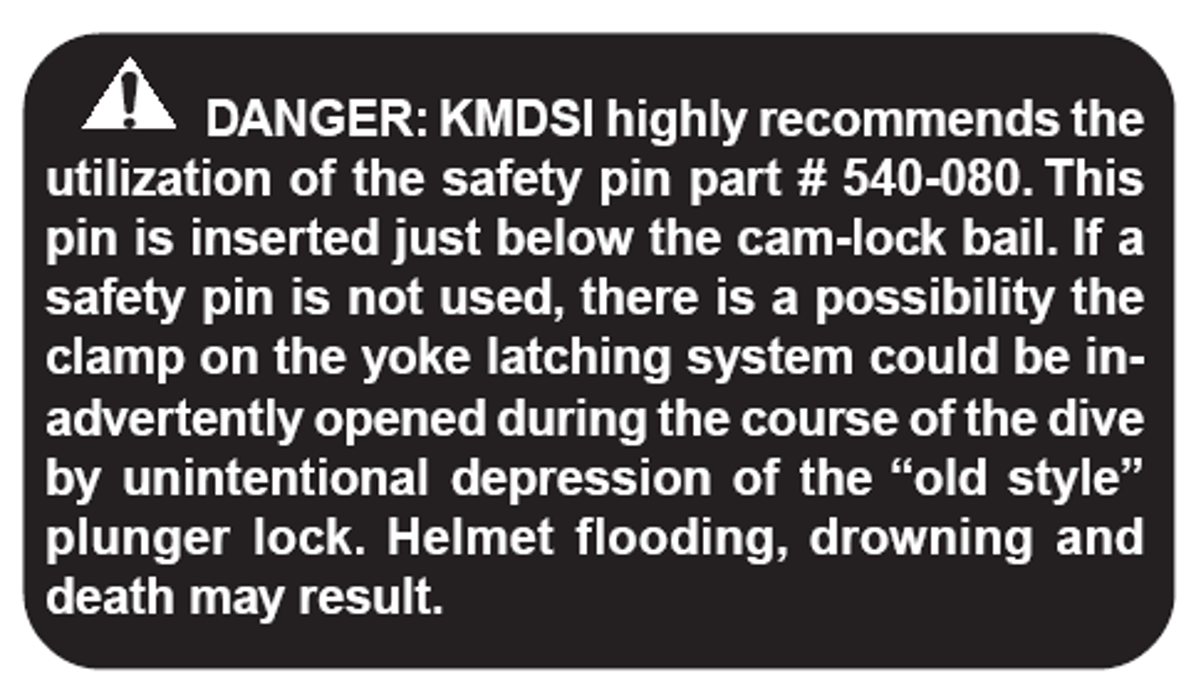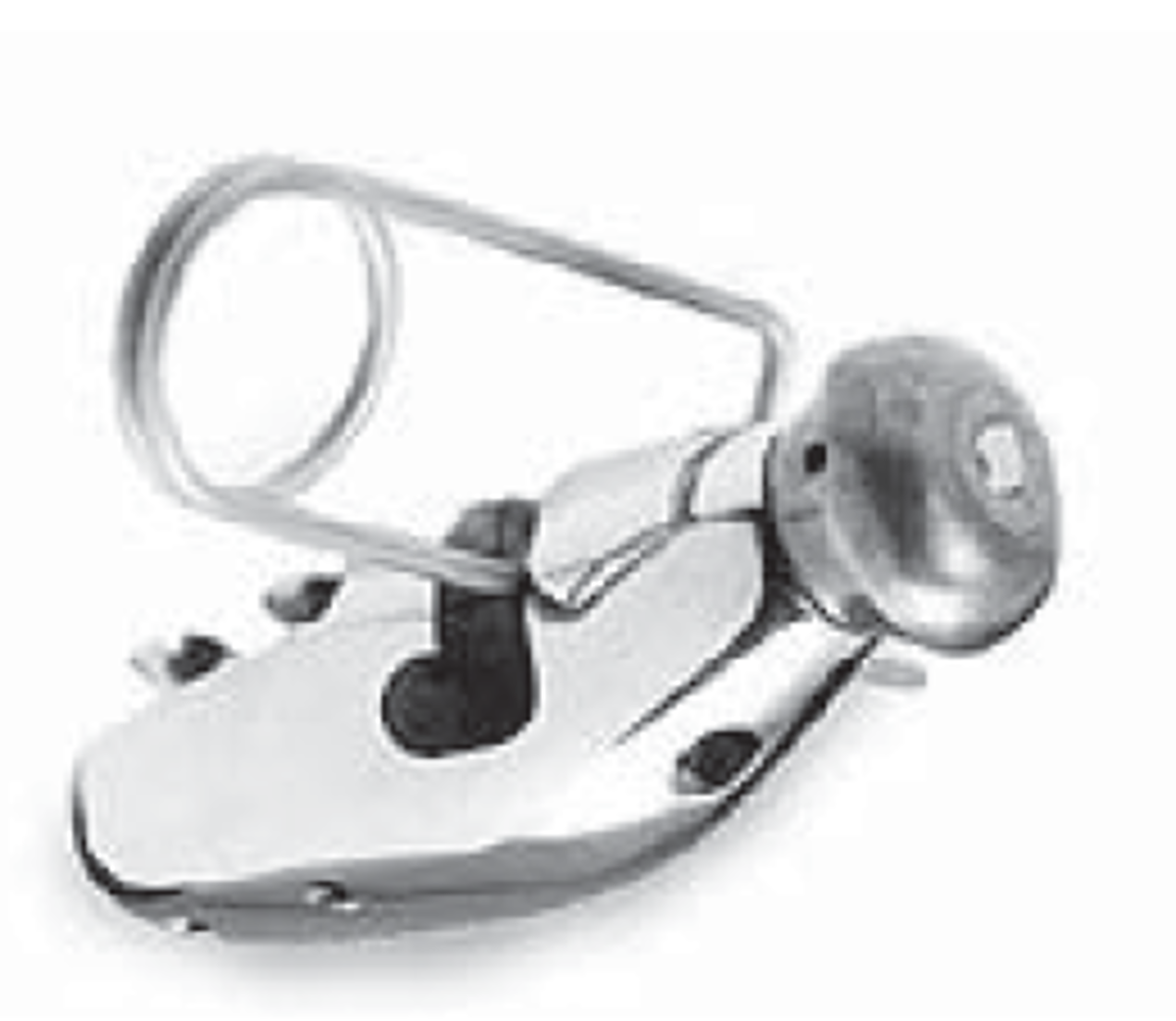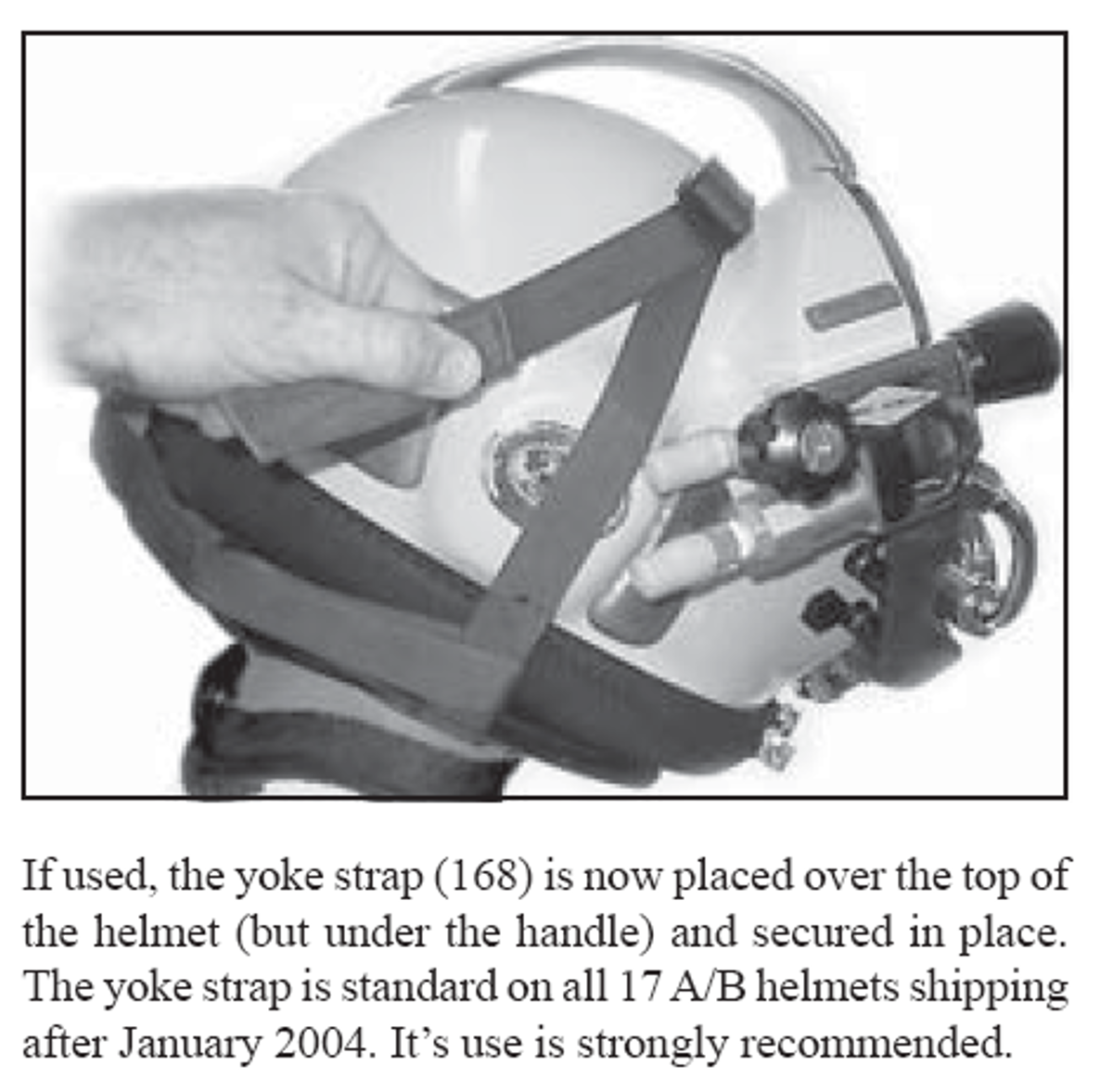Near-miss during diving operations
- Safety Flash
- Published on 30 November 2005
- Generated on 3 March 2026
- IMCA SF 11/05
- 2 minute read
Jump to:
IMCA has been advised of a near-miss during diving operations involving the cam lock on a KMB17 diver's helmet.
The diver entered the water and stopped at a depth of 3 metres to begin safety system checks, after which he continued his descent. At 8 m, the diving superintendent heard a water gurgling sound from the diver and asked him if he was experiencing any problems. The diver reported that his cam lock had come undone. The diver turned on his free flow, evacuated the helmet and attempted to relatch the neck dam. Realising that something had become stuck in the cam, the diver reopened, cleared and relatched the cam lock.
Having confirmed that the safety system was secure, the diver was ready to continue to the bottom. However, the diving superintendent thought it best to abort the dive to check the cam lock and ensure there was no damage. The dive was aborted and the diver returned to the surface safely.
During debriefing, the diver stated that he had one hand on the down-line and the other held a cloth measuring tape. The diver was proceeding down the down-line head first and the cam lock apparently made incidental contact with the down-line, causing the cam lock to dislodge.
What were the causes?
Investigation noted the following positive points:
- The diver was able to relatch the cam lock whilst in the water.
- The dive was promptly aborted in an effort to better understand the matter.
- The site leader gave immediate attention to the situation and contacted all appropriate supervisors.
- The contractor and client were in agreement and supportive of the entire investigative process.
The following points were noted:
- The manufacturer's manual includes the notice reproduced as figure 1.
- The diver had been carrying something whilst descending.
- There was a lack of appropriate safety pins for cam locks.
Actions
The following lessons and corrective action were suggested:
- The use of a safety pin or other secondary safety device on Kirby 17A/B helmets (see figures 2 and 3).
- The importance of remaining up-to-date on safety alerts from manufacturers of dive equipment.
- Divers should not descend to the work site carrying tools or equipment.



(images used with permission; copyright Kirby Morgan Dive Systems)
IMCA Safety Flashes summarise key safety matters and incidents, allowing lessons to be more easily learnt for the benefit of the entire offshore industry.
The effectiveness of the IMCA Safety Flash system depends on the industry sharing information and so avoiding repeat incidents. Incidents are classified according to IOGP's Life Saving Rules.
All information is anonymised or sanitised, as appropriate, and warnings for graphic content included where possible.
IMCA makes every effort to ensure both the accuracy and reliability of the information shared, but is not be liable for any guidance and/or recommendation and/or statement herein contained.
The information contained in this document does not fulfil or replace any individual's or Member's legal, regulatory or other duties or obligations in respect of their operations. Individuals and Members remain solely responsible for the safe, lawful and proper conduct of their operations.
Share your safety incidents with IMCA online. Sign-up to receive Safety Flashes straight to your email.